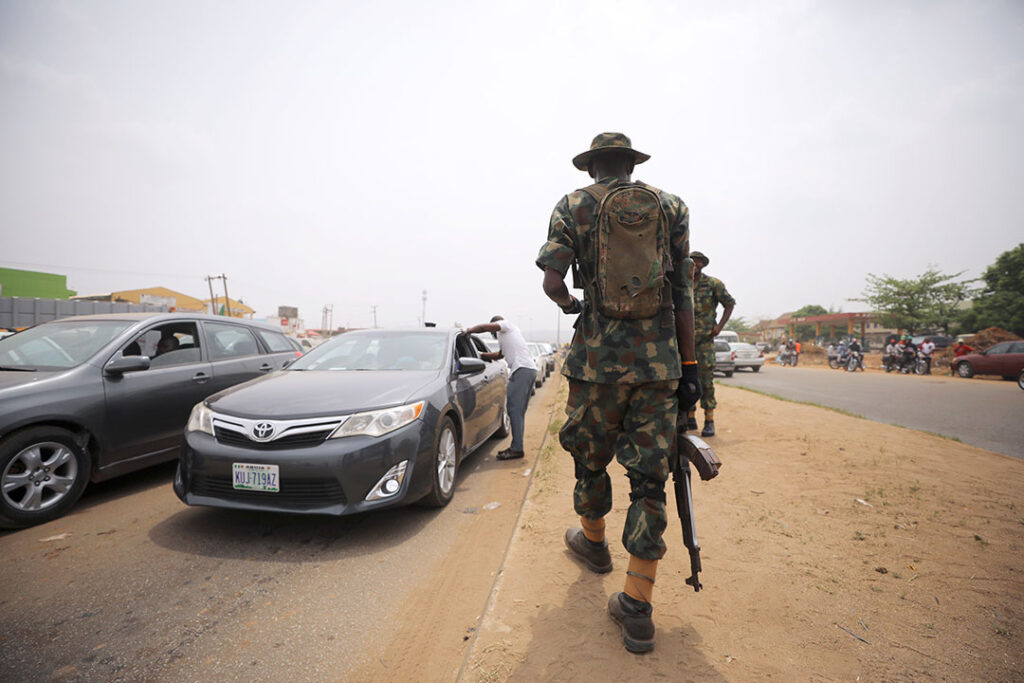ADF STAFF
African countries are using lessons learned from deadly Ebola outbreaks to thwart the spread of COVID-19.
The coronavirus has infected nearly 4.8 million people worldwide and killed more than 316,000. But only 78,194 of those cases were confirmed in Africa as of May 16, according to the Africa Centres for Disease Control and Prevention (CDC), and only 2,630 had died. When Ebola struck in 2014, the Africa CDC didn’t exist.
“That is one lesson we learned,” Dr. Ahmed Ogwell of the Africa CDC told Voice of America. “The heads of state found it wise to establish a continental specialized agency to address emergency preparedness and response.
“We’ve [also] established a cross-border collaboration,” Ogwell said. “This has been a big lesson during Ebola time, and we are using it effectively now during the COVID-19 outbreak. Countries are coming together and using resources in one country to help another country.”
Ogwell said the Africa CDC “mobilized partners” from the beginning of the current outbreak.
“We are watching very closely our partners on the continent and beyond to ensure that we don’t have a very large number of cases on the continent,” he said. “We use those lessons to improve how we respond this time around.”
Liberia
Dr. Mosoka Fallah is a veteran of the 2014 pandemic and head of Liberia’s National Public Health Institute, which was established in Ebola’s wake. He led the country’s preparation strategy for COVID-19 and saw the potential danger almost immediately, learning that more than 300 Chinese citizens had arrived in Liberia from China, as had 80 Liberians. He began to communicate with counterparts in Sierra Leone and Guinea on a WhatsApp group, Time magazine reported. They talked about airport screenings, potential flight bans and quarantines. That was in January 2020, when many countries still had not realized the threat of the new virus.
By the end of January, Fallah was working with Dr. Jerry Brown, who ran one of Liberia’s largest Ebola treatment centers. They worked to set up training to help hospital personnel recognize COVID-19 symptoms. The WHO helped them buy test kits, and they had a staffer trained on how to test for the virus. That allowed Liberia to do all COVID-19 testing domestically.
“When Ebola struck, we did not have the capacity in the lab to test; we had to take specimens across to Guinea,” Fallah told the BBC. “It took us almost a week to have the results, and we lost the element of time to quickly respond. But now with the ability to test in country, we can test quickly and respond rapidly.”
Gyude Moore, deputy chief of staff for Liberia’s president during the Ebola outbreak, told Reuters that Liberians, especially those living in remote areas, need to hear information from trusted sources. The Ebola outbreak killed more than 11,000 people, mostly in Liberia, Guinea and Sierra Leone.
Many people died of Ebola, Moore said, because they did not heed the government’s advice not to touch dead bodies.
Countries have learned that a president speaking on radio or television reaches a limited audience. Now, Moore said, health messages and information are also being spread by religious or traditional leaders and door-to-door by volunteers.
Nigeria
Nigeria had significant success in keeping the Ebola pandemic from wreaking havoc in its country several years ago. Now, a private sector group, Coalition Against COVID-19, has ordered 250,000 tests and 150,000 extraction kits to speed up molecular testing for COVID-19, according to an April 29 report in The Lancet Respiratory Medicine journal.
The group also has set up isolation centers in Borno, Enugu, Kano, Lagos and Rivers states and is renovating hospitals and increasing medical supplies in other states. Nigerian Health Minister Osagie Ehanire in April unveiled 12 COVID-19 testing laboratories that can process 1,500 samples a day, according to The Lancet. Although increased testing capacity would show more cases, it also would mean that authorities could test the contacts of confirmed COVID-19 cases.
Nigeria continued to increase its testing capacity. On May 16, the Nigeria Centre for Disease Control announced the 26th lab in its national molecular laboratory network, the Accunalysis Diagnostic Centre in Anambra. Three other labs were in the process of being set up in Gombe, Katsina and Kwara states.
Uganda
From 2014 to 2016, Ugandan officials kept an Ebola outbreak in the Democratic Republic of the Congo from crossing the border. Uganda now has redirected its resources to combat COVID-19.
Emmanuel Ainebyoona, a spokesman for the Ugandan Health Ministry, said the country has established screening measures at borders and airports to detect the virus. The only miscalculation, he said, was not recognizing the United Arab Emirates as a high-risk country earlier, which allowed infected people to enter Uganda.
Ainebyoona said Ugandan officials also have studied how COVID-19 has spread in China and Italy.
“We have learned from the experiences of other countries so we might forgo and prevent some mistakes that they have committed or approaches that didn’t work,” he told NBC News.

